Podcast: Download (Duration: 46:49 — 38.3MB)
Subscribe: Spotify | TuneIn | RSS | More
How you can prepare your book before sending it to an editor? What are the different types of edits and editors you can use for different phases of your writing process? When is editing software worth using and when do you really need human eyes on your work? All this and more in the interview with Natasa Lekic.
In the intro, cycling through the Cotswolds (pics here on Instagram @jfpennauthor); Book marketing for introverts (6 Figure Authors); and limited time 99c/99p books for writers (DavidGaughran.com/writer-blowout)
Do you need an editor for your book? Do you want to know how to find and work with a professional editor? Check out my tutorial and list of editors and resources at www.TheCreativePenn.com/editors
Natasa Lekic is the Founder of New York Book Editors, which matches writers with experienced, vetted, professional editors. She previously worked in publishing and also co-founded an animated story platform for kids.
You can listen above or on your favorite podcast app or read the notes and links below. Here are the highlights and the full transcript is below.
Show Notes
- Why authors use professional editors
- How to prepare your manuscript before sending to an editor
- The different types of edits and how they work for writers with different levels of experience
- What to do with notes from an editor
- How much is editing and why is it an investment?
You can find Natasa Lekic at NewYorkBookEditors.com and on Twitter @NYBookEditors
Transcript of Interview with Natasa Lekic
Joanna: Natasa Lekic is the Founder of New York Book Editors, which matches writers with experienced, vetted, professional editors, many of whom have worked with award-winning and bestselling authors. Natasa previously worked in publishing and also co-founded an animated story platform for kids. Welcome back to the show, Natasa.
Natasa: Thank you so much for having me, Joanna.
Joanna: I'm excited to talk to you again. We had such a good chat last time. Let's get straight into the whole topic of editing because it is one of the core things that writers have to deal with.
Why is it worth working with a professional editor anyway? Why not just use people in a writing group or beta readers?
Natasa: Let me explain how editors edit when they're at the very beginning of their careers, because it's the same or similar to how beta readers and writing groups look at material. And it's actually also why we have the longest experience requirements for our editing team. It's something I feel very strongly about.
Early on, as an editorial assistant, or later, as an assistant editor, an editor approaches the manuscript with their own predilections. They have their own tastes about what constitutes a good narrative arc, what the voice should sound like, who the character should resemble.
Getting to the point at which an editor can read a manuscript without these preconceptions, takes a lot of time. I don't want to get too woo-woo, but it sort of means you can release your ego and truly immerse yourself in the universe of the author.
Understand, even though it's an early draft, which is what makes it even more challenging, where he or she is going with it, and help them using their ideas, their characters, their language.
When an editor reaches that stage as a professional, they're also able to put their thumb on what's missing. So you have to truly, truly understand the author's point of view, in order to be able to say, ‘This is a weakness, and here's what I suggest we do.'
Maybe I'll give you an example. That might be easier. There's this lawyer called Mary Atkins. She left her job and found a job that was more flexible that would give her time to write. So that shows you how committed she was to the idea of becoming a writer.
And over time, she took writing courses, she joined groups, she had beta readers. She did it all. And she found when she was querying agents that, although they requested her manuscript, so they were reading more of it, there weren't any takers. No one was giving her offers.
When she came to New York Book Editors, it turned out that the things she had been focusing on were really polished. The plot was clever and nuanced. Her prose had wit and humor and perfect timing.
It turned out that what she was missing, her editor pointed out, was that the novel didn't have heart. It sparkled with cleverness but it wasn't giving readers a chance to feel for these characters. The emotions weren't there.
Mary called that letter the turning point of her career as an author. She said that, as soon as she read it, she felt like everything it said was exactly right. But for whatever reason, she hadn't been able to see it for herself.
Joanna: This is why I've never worked with a writers group because I want someone who's experienced as an editor in order to look at my work. And I think what you said about removing your ego and removing your preference, I think is almost really important.
Because if you just ask someone in your writers group, what if you've written a romance and they love horror? Or the other way round. You're never going to find people who have gone through that level. So I totally agree with you. I absolutely work with professional editors on all my books.
Before we get into the detail of what the different types of edits are, there are things that authors can do to get their books into the best shape possible before working with a professional editor because if you don't give it a good go, you're going to be tackling some basic stuff.
How can authors get their book into a good shape before hiring an editor?
Natasa: Yes, absolutely. At a very basic level, you know, if you're a novelist or a memoirist, definitely make sure you have a full draft. But as you alluded to, once you have that draft, I would say follows Zadie Smith's advice. And she calls this her only 24 karat gold plated advice.
You don't have to publish immediately, either for financial reasons or other reasons. “Put the manuscript away in a drawer.” And I know this is basically impossible. She advises authors to leave it there for a year.
Joanna: Oh, no, that's too much!
Natasa: I know. That's too much.
Joanna: At least a couple of weeks, maybe.
Natasa: A couple of weeks. But, yeah, three months, if they can. Three months is really a good period as well.
The secret to self-editing is to impose enough distance between yourself and the manuscript so that you can really become its reader.
You can approach it from the perspective of something that approximates a stranger. And usually, once you've finished the manuscript, once you finish the first draft, there's such an eagerness to hand it over to an editor.
You've been grappling with it for so long, you want to pass it on to someone else. ‘Okay, it's your turn.' But as you said, working with an editor is an investment and you don't want their feedback to include all the things you could have spotted yourself if only you've given it more time.
You want it to be full of the nuances that you wouldn't have seen no matter how much time you'd given it yourself. The key is really to approach your work from all these different perspectives as a writer, as an editor, while you're writing and then later as a reader when you return to it.
At New York Book Editors, it's really important that every author gets the most out of their experience. So we actually have a first screening. And if we think that the author can take the work further on their own, we'll suggest some books on writing, and occasionally books in their genre.
Because what's most important to us is that we're we know we're doing what's best for the author. And if timing is the issue and the author needs more time in order to get the best edit possible, then we're very upfront about that.
Joanna: I think that's really important.
Let's get into the different types of editing. Because I feel like this is one of the issues with new writers is they think there's just one type of editor. And so that can cause problems later on. So let's start with I guess the top level, the developmental or structural editing, sometimes called manuscript critique.
What does a structural edit do for people? And how does it help?
Natasa: This is the edit where some really deep revision takes place. The major character development problems, intractable structural knots, or sometimes maybe for nonfiction some of the manuscript falls flat and feels like an information dump. So it's the time to do some deep work to make sure your house has all its supporting walls, that the roof covers the entire structure.
I'll give you a quick example here, too. There was a manuscript that was very much like, let's say, Game of Thrones, with a large cast of characters. And the editor told the author he needed to make sure the point of view we were hearing from was the character who had the most at stake in that scene because that wasn't always the case. That's the character's head the reader wants to be in at that time.
Advice like that would lead to quite a bit of revision. And something else to note about big picture edits is that it's often where good editors and the editors on our team distinguish themselves.
If you're not getting these kind of macro level suggestions and the editor is largely making those small tweaks here and there, then it's probably due to lack of experience because no matter how far along you are as an author, you need some of this kind of feedback.
Joanna: And actually this is the type of edit I still pay for, for my novels. I really don't need a line edit anymore. I've written a lot of books at this point but I call it more a story edit for my fiction.
Because, as you say, there are things that might work in your own head, but don't necessarily work in the book that you just can't see. And very importantly, this has nothing to do with grammar and typos and sentence structure really, is it? This is that high level edit.
Natasa: Yes, very important not to conflate those.
Joanna: I think if people are expecting one thing rather than another, it can cause problems. This can really help you with your story.
For nonfiction in particular, what are some of the things that this type of edit will help with?
Natasa: For nonfiction, sometimes it's how to bring in more anecdotes to bring the examples to life, if it's an instructional book to add dialogue to really make that more concrete. So things like developing the overall structure for the entire manuscript.
Joanna: For example, when I've restructured some of my nonfiction, it's because something's missing or the journey for the reader just doesn't travel through well enough through the book.
And as you mentioned, dialogue there for nonfiction, I think that surprises some people because they say, ‘If I write nonfiction, I don't have to do dialogue.' But as you say, you can bring things alive by actually using a lot of the tricks of fiction in your nonfiction to make it much more personal and have a voice.
Natasa: I don't know if you have a book on that, Joanna, but that sounds like a great topic. How to bring in those fictional elements for nonfiction authors.
Joanna: Funny, you should say that. I do have a book on how to write nonfiction, which has a chapter on that!
Natasa: Okay, great.
Joanna: I didn't even pay you to say that!
How long would we expect a document to be coming back from this kind of developmental structure or manuscript critique?
Natasa: It all depends on the editor's schedule and the length of the manuscript, but usually on our average I would say six to eight weeks.
Joanna: Oh, no, I mean, like, how many pages because people think, ‘I'm going to get a massive tome from the editor.' But the notes I've had from my story editor sometimes are only a couple of pages, but even a sentence in that can make a big difference to how I treat the book.
Natasa: Usually our memos run seven pages or so. Often the author will also choose to have margin comments. They're talking about the big picture changes. And then in the margins, they'll say, ‘Okay, here's where you would take that feedback into account.'
Joanna: When an author gets this kind of edit back, what should they be doing with that feedback?
Natasa: They should be treating it like it's radioactive!
Joanna: I'm glad you said because I was about to say ‘don't look at it. Really, don't look at it.'
Natasa: You should ignore it. Pretend it's late. The radioactive comment, I have to give credit to Nathan Bransford who uses that term. I just think it's so good.
There are authors, like I mentioned, Mary Atkins, who may read the letter and it makes perfect sense and everything falls into place and she's ready to go. But there are a lot of authors for whom it feels really overwhelming.
If you've been writing, obviously, your own story, it's as if you've been living in your own version of ‘Alice in Wonderland.' And suddenly this editor comes on to the set and says, ‘But don't you see the tea party is taking place upside down.' And you've been to this tea party so many times you think, ‘What are they talking about?' It takes a minute to envision it on solid ground.
And then if the advice is actually good, it should suddenly hit you, ‘Oh, wow. I guess my characters have been sort of upside down.' So the first thing to do is read it and then leave it and come back to it in a few days. Three seems to be a magic number all around.
I hear that three days has been the key for many authors. In three days they've had enough time to absorb the material. And they feel like they're on board with it.
At that point, the next thing to do is all of our edits include follow up calls and yours should as well. So at that point, you should be taking notes on what you'd like to discuss during that call. So anything you want to clarify or things you want to brainstorm about. That's also a great use of that time.
And then after the call, when you return to the edit, now, hopefully, we have a lot more confidence, don't try to tackle everything at once. You're eventually going to end up reading that letter and the margin comments many, many times. At this point, just pick out something that really jumps out at you.
It may be a few smaller changes, and maybe one big change and tackle that first. And then once you feel satisfied with that revision, reread the edit, and pick the next thing.
So it's really picking your battles one by one as they speak to you rather than feeling overwhelmed that you have all this to do.
Joanna: I'm definitely the same and I remember getting one edit back a long, long time ago, and I was really angry. I was obviously angry at myself, really. But it feels like you're angry at the editor for criticizing your wonderful, perfect book.
And, as you say, like putting it aside for a couple of days makes you realize that some of these things aren't completely right. And so I think as you say, it's really important to wait before you jump in.
And then what I do, because I have my manuscript in Scrivener and all my little flags have gone blue, that's when I've sent to sent it off. And then I go into each of the chapters, and I will almost copy and paste the comments into my Scrivener and then highlight them and change the color of the flag.
Once I've got that, then I tackle each one of those at a time, as you say it's kind of breaking it down. You definitely have to take some time over that chewing on the process and thinking about it again. But to me, this is such a valuable side of things. And something I still learn a lot from every time.
Natasa: It's so incredible how similar the process is for for all authors and how magical that time is waiting. Even when we said putting the manuscript in a drawer, there's so much to be said for pausing and letting things sink in.
Joanna: So we've made these bigger changes, whether we're writing fiction or nonfiction, we we've gone through all of that. And we're now happy with it on a bigger level. And people call it different things. Maybe we can start with that, which is line editing, copy editing, comprehensive edit.
What is this next level, which really is at a much more detailed line level?
Natasa: The next level, the term that will be consistent throughout will be the line editing term. And the the full edit that encompasses that can go by many different names.
The key is to say, ‘Does this include a line edit?' And if the editor says yes, that means it's at this next phase of editing. I think we can address the copyedit afterwards, completely different ballgame.
We call it a comprehensive edit. And a comprehensive edit or line edit is basically a full markup of the prose. So it's reshaping your sentences for clarity, flow, pacing, while also keeping an eye on the bigger issue.
You don't leave the big issues behind completely. But at this stage, there should be less of them. So we're not revising half the manuscript. We're making these smaller revisions.
But also notice that I said reshaping of your sentences. So this shouldn't be a rewrite. Once again, as with the big picture changes, your editor as ours do at New York Book Editors should be largely invisible, meaning their changes should feel like a natural part of your prose.
They're using the material that's there largely and cutting back or rearranging, maybe adding just a phrase for clarification. But all of it should feel very in line with the author's words.
Joanna: This might be a little bit controversial. This is where I use ProWritingAid, which helps me with the line editing. I've written 32 books at this point. So I have had the comprehensive edits on earlier books in my journey, but now I find ProWriting Aid can do a lot of that line editing.
What do you think is the difference between a human editor on this level and a tool like ProWritingAid?
Natasa: I haven't used ProWritingAid. Does it change your sentences? Does it clarify?
Joanna: It does an incredible job at a very detailed level and picks up passive voice and grammatical things and has thesaurus things and has reports on repetitive words and all of this type of thing.
Natasa: I think that that sits in the gray zone. Passive voice would be part of the line edit. The grammar and other things would be part of a copy at it. I wish we could look at an example on the screen of a line edit to really sort of show you what I mean.
But I believe that it's not there yet. I think that the technology will probably get there where it can do like a full line edit. But I think that really looking at a passage, understanding its intent. And seeing that it's not coming across clearly and making those adjustments, I don't think technology can do that yet.
Joanna: I think that would be the difference what you just said there, which is looking at a passage and saying, ‘This is the intent, and it doesn't get there.' Now that definitely is not covered by software.
At the moment, that's definitely the human reader. And then another pair of eyes on your work and trying to communicate the message that you're trying to get across.
If someone does work with you or another editor, would they have a different editor for line editing than they would for developmental?
Natasa: No. So that's the same role, but they would have a different copy editor. That's a different role. There's this clear division between the two types of edits, but we say that usually you would start with a critique, but it really depends on where the manuscript is and it's perfectly normal for an author, with your experience to just have the critique.
It's not a chronological thing that necessarily an author would always have both but it's the same role. You'd be working with the same editor.
Joanna: Okay, let's get into copyediting.
Natasa: Copyediting is much more technical and objective. I think that at this stage, probably, for a lot of this, the applications would do it really well.
Copyeditors make sure that the grammar and word usage is correct and consistent. They check for continuity and factual accuracy. Okay, maybe software can't do the factual accuracy part. But by continuity, things like if a character's hair is brown early on, that it remains brown.
Once your draft is complete, meaning the narrative and prose has been worked through, the copyeditor comes in to correct those technical issues.
Joanna: That's really red pen type edit that people might have seen, or would that be something between the line edits and the copyedit?
Natasa: No, that's really the red line copy editing. It's done using track changes. Is that what you mean?
Joanna: Yeah, I think this is one of the biggest misconceptions around editing is that people have seen pictures of manuscripts. If they haven't done one before they've seen manuscripts or maybe at school, you get a teacher crossing things out and underlining things.
That red pen edit is actually that as we're talking about is near the end of the process. But I feel like people think that is editing and they obsess around sentence and grammar and whereas actually the more important stuff happened early.
Obviously, you need this, but it feels like the other stuff is so important.
Natasa: Absolutely. I agree with all that. I think it's so comforting to realize that you can work with someone on your story and on your prose at a deeper level that you're not alone in that, that it's not just that someone's going to step in later on with the technical issues.
But, when it comes to all the red line changes, that also happens in a line edit. Actually there are probably more red marks online edits than on copyedits.
Joanna: I think this also has sometimes to do with the different terminology that's used in different places. I wonder if it is the same across different countries because obviously I'm in the UK, and I've lived in Australia and over New Zealand, which is usually British type of English.
For me a copyedit was always the same as a line edit. So I think for people listening, a key would be whoever you're talking to about everything, you need to really get clear what you're expecting and what the editor is expecting.
There may be some misunderstandings about the different words used.
Natasa: Yes. And I'm going to say something else that's controversial, which is that copyediting doesn't take as much time as line editing. And the experience level is not the same.
It takes a lot longer to become a really accomplished line editor. And what happens sometimes in freelancing is they'll say, ‘Oh, I'll do both.' And what that means is, you're probably not getting a great line edit. Because if they're also going around and looking at the grammar, then their focus is taken away from the way that the prose reads.
Joanna: The other question is, what is proofreading?
Natasa: Proofreading is largely another copyediting pass. Firstly, because when it comes to grammar and continuity, it's not easy to pick up on everything in one pass. So if you're really angry at your copyeditor, because something was missed, just know that that's completely normal.
It happens even in-house at publishing houses, although they do several passes with a copyedit. Proofreading takes place after the manuscript has been typeset. So when your pages actually look like a book when the interior layout is done, mistakes may have been introduced by doing that.
The proofreader checks for that as well. Things like too many hyphenated words at the ends of lines. And they're doing, as I said, another sort of copyediting pass.
Joanna: It's funny you say that because with my fiction, I don't find it. I do have a separate proofreader to my editor. And that, I guess, in a way, it's a bit of copy editing.
But for my nonfiction, I actually upload the book, get it printed before making it live as such. And I go through my nonfiction, particularly in print, page by page because then that is, as you say, the hyphens with nonfiction as well with the URLs and with the things that you might have in a nonfiction book that make it much more formatted than fiction.
I feel like you really need to check that in the print layouts that you might not worry about so much with an ebook. So I think that's something else for people to consider.
One other thing that I was going to ask you and I didn't prep you on this, but you've been editing things for audio a lot more. So for example, when I'm doing my own pass through, I'll be like, ‘That's not going to work in audio. So I need to change that.' So it's more like an audio first edit.
Because a lot of these audio projects now and audiobooks, you have to write differently than you did before. Because it doesn't sound right out loud whereas it might have been fine in someone's head.
What are your thoughts on editing for audio?
Natasa: That is so common. There's this famous and prolific author who does her own audio work. Part of her editing process is recording the audio. So it takes her forever. She goes to the studio and I know the owner of the studio, so he tells me about this that, ‘This is going to be a very long recording and will take, I don't know, whether it's several weeks.'
But she'll come in. And as she's speaking, she'll realize that that doesn't sound right. And she'll go to the page and make the changes.
That's also a very common piece of advice when it comes to editing. Read your own work out aloud and see how it sounds and whether you'd make changes to it. I think it's great advice when it comes to self-editing.
Joanna: Absolutely. I do that too. Well, for my nonfiction, I record my own audiobooks and I won't do my print formatting until I finished the audio. So same idea, whereas I outsource my fiction. [I cover a lot of this in Audio for Authors: Audiobooks, Podcasting, and Voice Technologies.]
What we've talked about here is obviously lots of different stages to editing. And in between these edits, the author is also making changes to the manuscript and improving it.
You mentioned the word ‘investment' earlier, and I've certainly invested a lot in editing over the years. In my first novel, I spent the most money because I had the most to learn. And I use different types of editors, multiple editors over several years, and even a later rewrite post publication.
I feel like we have so much to learn. For me, the best way is paying for a professional to help me learn on my manuscript as opposed to going to a class and getting something less specific. So let's just be clear that it is an investment.
Do people need all of these different types of edits and are there brackets of how much these things cost?
Natasa: No, they don't need all of this stuff. We do a manuscript evaluation, which is complimentary, because as I said, it's for us, it's really important to know that, if we're signing up with the author, we're doing what's beneficial for them.
So we will do a review of the manuscript and recommend the type of edit that would benefit them most. And as I mentioned in your case, you can do a critique and you're good to go because you've had all this experience. Sometimes that's true even for first time authors. Sometimes that's all they need. And other authors can jump to the line edit.
It's really about assessing where the draft stands and what its needs are. And I think that relying on your editor for that kind of advice and insight is really important.
I always say that, if budget is an issue I would go with the developmental edit or the comprehensive edit over the copyedit. A copyedit, as we kind of touched on, I think you can get because it's more objective and more technical you can use all these sort of automated resources like ProWritingAid.
You can also go over it yourself. Maybe pick up the Chicago Manual style, although it's very intimidating. But I feel like the story development and the line editing is much more difficult to do on your own or to lean on others who are not professionals. If budget is a concern, that would be my recommendation.
Joanna: In terms of costs, it will be different depending on the type of edit and it will be different on the length of the manuscript as well, right?
Natasa: Yes.
Joanna: And also the level of the author because it will depend on how much work it's going to need. I think this is really important, too, is that people email me all the time. And they say, ‘How much is an edit?' And I'm like, ‘This is not one question. This is so many questions.'
Natasa: Yes. We have an online calculator for the different types and there's a range in each one. And you put in your word count, so it would give perhaps authors that an idea of what to expect in terms of estimates. But all of those things are really going to account.
Joanna: A big question is, how can an author find the best editor for their book and also where they are on the author journey? Because there are a lot of editors out there and you obviously you have a lot of editors in your company. And there's a lot of editors out there in the world in general.
How do people find the best editor for them?
Natasa: This is such a challenge, and it's why my company exists. It's why New York Book Editors exists. And from our experience, I can say the key is to find that deep level of experience and the right personality.
Experience is probably the easier part. Editing is really an apprenticeship career path. I would say please don't consider working with anyone who hasn't had a long publishing tenure.
I've really seen a countless number of edits. I don't even know how many edits I've seen over the last 12 years. From editors of all backgrounds. We've also early on writing professors, bestselling authors. I can tell you that nothing can replace that editing time for a major publisher. You need at least four years of that time.
This is the longest requirement around and other bars aren't set quite as high. I really believe in that timing, because the editor needs at least that much time to have worked on their own books for a while.
And then editing it comes down to integrity also. Is the editor honest about their interest in your manuscript? That's so important. To get a great edit the editor has to be genuinely interested in the topic, in the voice and the characters. And also are they going to devote the time and attention the manuscript really needs.
This is the other mistake we made at New York Book Editors. And that was that we assumed authors would be able to tell us if their edit was enough to a high standard. And this is absolutely incorrect.
Editing your own book as an author I think feels much like walking across the country. And I'm envisioning the U.S. here. So, it's quite a walk. And then you get an editor. Even if it's a mediocre edit compared to what you've been doing, you're suddenly in a car. It takes just six days to get to the other coast. So it feels great. And you're so happy.
But what you don't know is that you paid for a jet plane. If you've only ever walked or driven, how can you be expected to know what it's like to soar? You don't know the difference.
Joanna: Obviously, on your site, you have the level of award-winning and bestselling types of books that your editors have edited. So I think that's really interesting.
And I'd also say that I settled on my current editor six or seven years ago, I think, and it did take a couple of tries for me to find someone. But when I started in 2008 to 2011, there wasn't the ecosystem for independence as there is now.
Now as you've got on your team editors who work or have worked with big names, traditionally published authors and with the mergers of the traditional publishing houses over the last few years, a lot of these editors have come out of traditional publishing and are now freelancing as such, which means we get the benefit of this experience.
Natasa: We were very lucky. Very lucky.
What would also happen, though, even editors who didn't get laid off because of the mergers and the layoffs, the editors who remained often had and, I mean, they still do, their plates are so full, Joanna, that they can't devote the time that they used to each manuscript and that's why they chose that profession.
Because that's what they love doing. And they suddenly found themselves relegating that part of the job to the margins. We have a lot of editors who started off saying, ‘I think freelancing would be a better option for me because I want to spend my time actually editing.' That's how they make the leap, some editors.
Joanna: Fantastic. Tell people what they can find at New York book editors and where to find you.
Natasa: It's newyorkbookeditors.com, or nybookeditors.com. And it's the same really on all social media at nybookeditors.com. Facebook slash nybookeditors, YouTube slash nybookeditors.
We have some really good informational videos there and interviews. Basically everywhere it's going to be NY Book Editors.
[You can support the podcast by using my affiliate link: www.TheCreativePenn.com/nybe ]
Joanna: Fantastic. Thanks so much for your time, Natasa. That's great.
Natasa: Thank you so much for having me, Joanna. Always a pleasure.
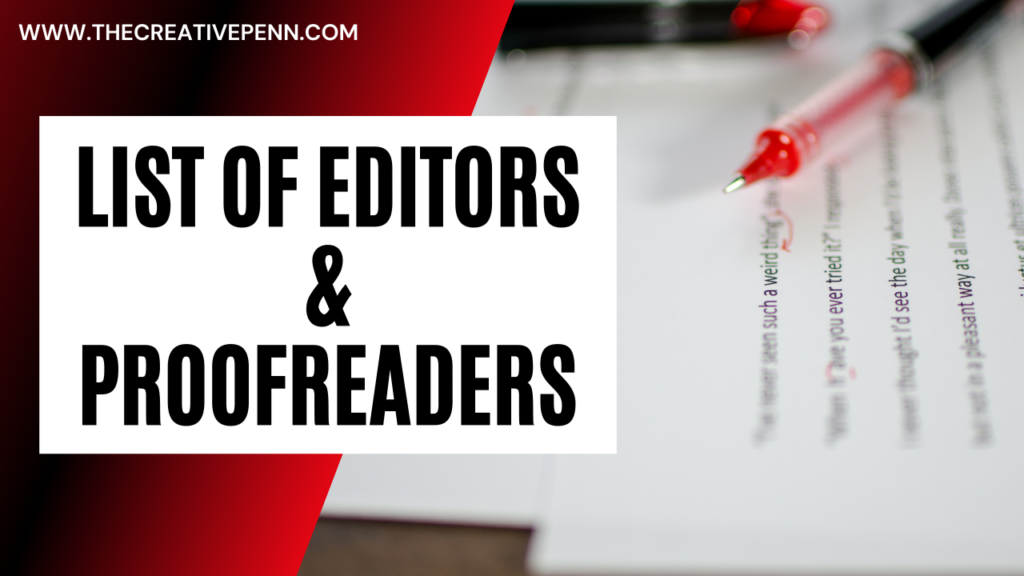
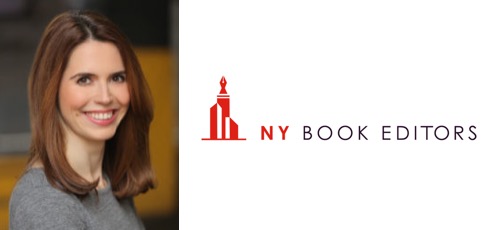
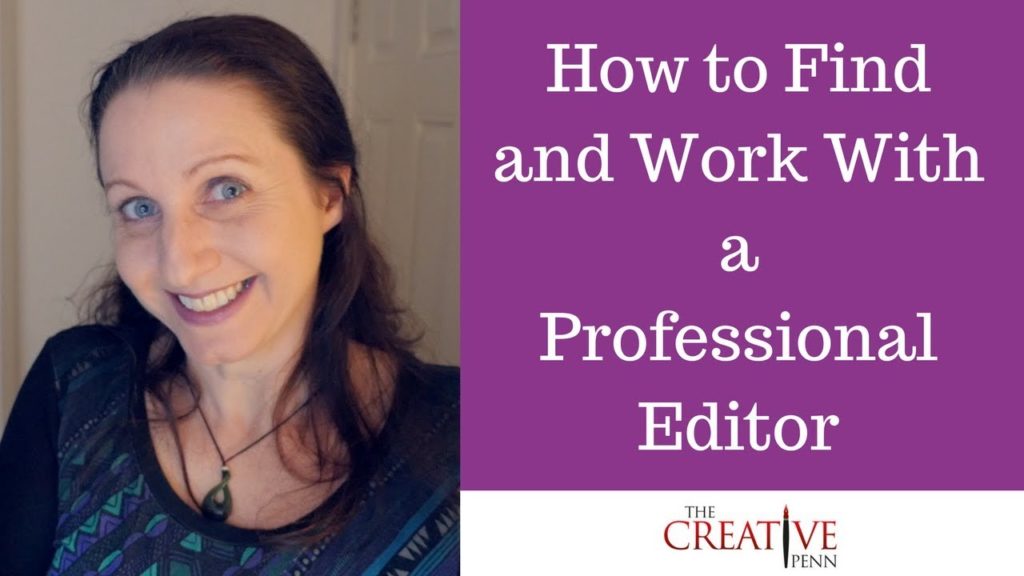
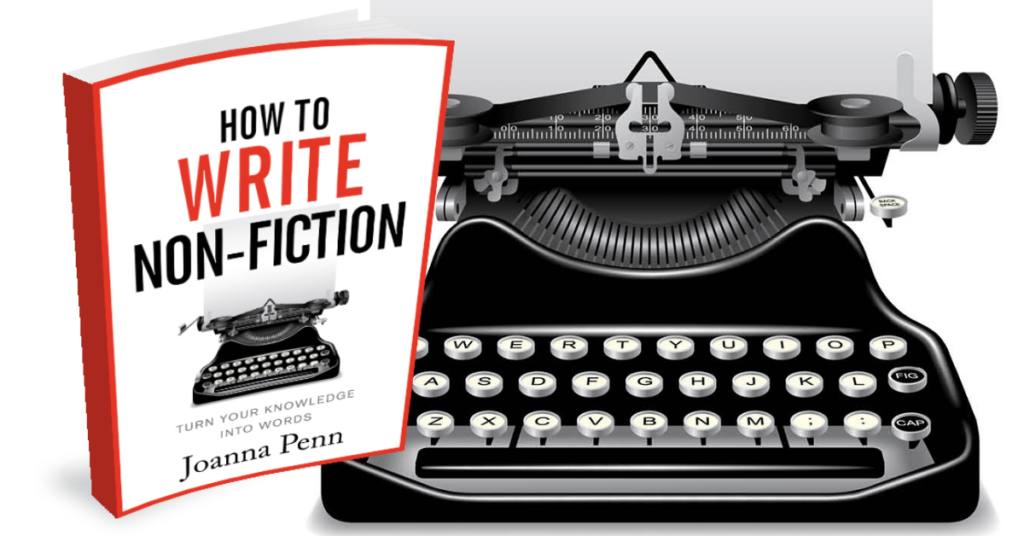
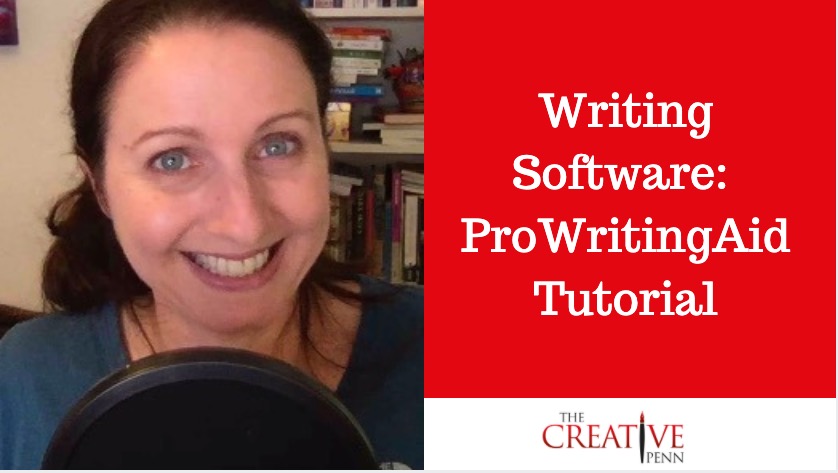
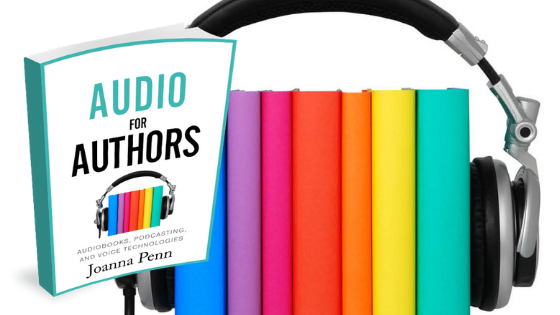
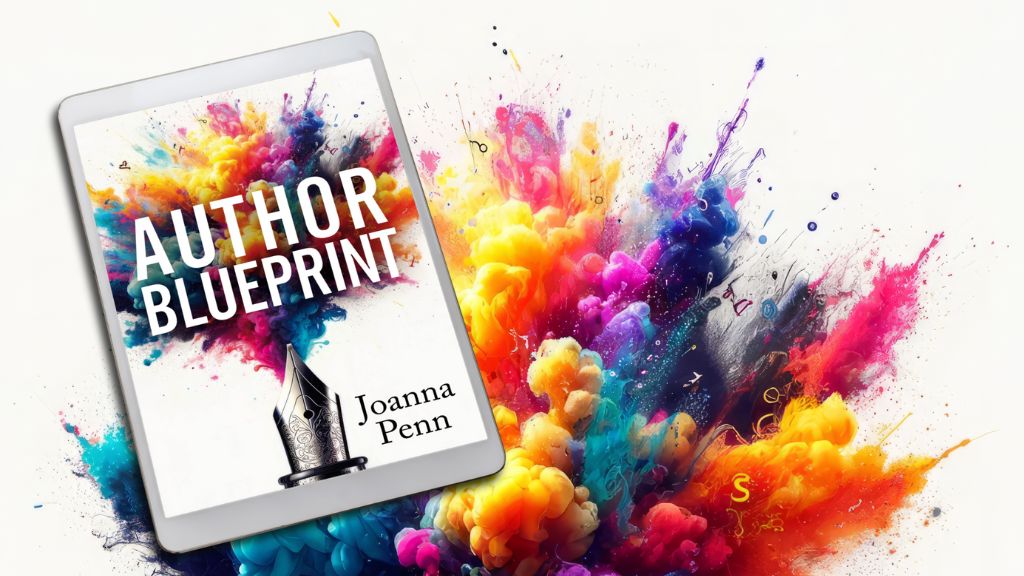

Thanks for this episode, Joanna! I found it really encouraging. Just last week I signed a contract for my first novel, and I’m currently preparing to send in my manuscript for a developmental edit. The whole process definitely feels a bit overwhelming at the moment! Natasa’s advice to allow yourself a few days to absorb an editor’s comments was a great reminder. Really appreciated this.
All the best with the edits, Mary!
Hi Joanna, I’d love to see Natasa and Dean Wesley Smith go head to head on the topic of editors and editing in a joint podcast. As you know, Dean is not a fan of developmental editing and says it kills creativity and original voices. And few of us beginners can afford the kind of prices quoted on the New York Book Editors site. A good copy edit and a single reliable reader (advocated by Dean) is what I’m looking at. What are your thoughts?
Hi Andrew,
You must know how much I admire and follow Dean Wesley Smith! I am a super fan of him and his wife and business partner, Kris Rusch.
But on this, we disagree.
Dean has written hundreds of novels over the last 40+ years so of course, he does not need an editor! He also has award-winning, multi-bestselling writer Kris as his first reader. Most of us are not so lucky!
I have definitely found that as my writing has improved, editing requirements have changed, and I can see a point where I get to Dean’s level. But that takes confidence in your storytelling and I am not there yet.
When starting out with my first novel, and in the first 10 at least, comments from developmental editors have helped so much. Beginning writers also don’t have ‘reliable readers,’ especially knowledgable ones. I have always valued paying for my editor as a first reader, and then I use ProWritingAid for the copy edit and I have a human proofreader.
I have never used writing groups for editing as I would prefer a professional.
However, we all have to make choices around what kind of editing we want to do, per book, and as our career progresses. You get to choose what you do with your book.
There are plenty of indies who have not used pro editors and are happy with their choice, and plenty who have gone back and rewritten books later when they could afford an editor’s help.
NYBE are a premium service, but I have lots of editors at all kinds of price points on this page – https://www.thecreativepenn.com/editors/
Let me know what you think!
Thanks for that link, Joanna. I’m checking it out. It’s a fascinating topic – I’ve searched without success to discover who edited John Le Carre’s books (and Conan Doyle, Charles Dickens.) Would enjoy hearing you and Dean in a future podcast discussing editors! Disclosure: I was a newspaper reporter and editor for more than 40 years. Often thanked for picking up typos and basic errors, but I remember being glared at, too. “You changed my lead. WHY?!”
I have been on the fence about I should get an editor, knowing how worth it would be and trusting them with my draft.
Reading this, I feel more confident in being able to partner up with an editor after a lot of research on them.
I’d love to know any suggestions on where to get beta reader! Thanks